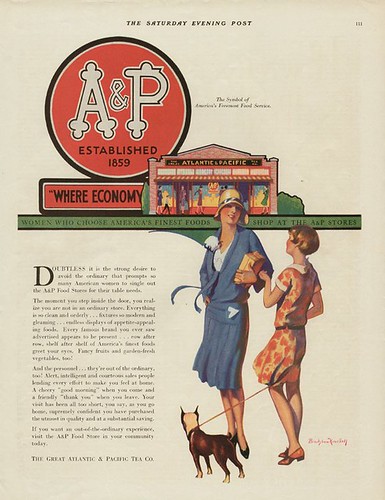Fighting, literally, against chain retail
 In the UK, active opposition exists to expansion plans by national supermarket chains, specifically Tesco, in traditional commercial districts and town centers where chain stores end up succeeding at the expense of smaller, locally owned stores.
In the UK, active opposition exists to expansion plans by national supermarket chains, specifically Tesco, in traditional commercial districts and town centers where chain stores end up succeeding at the expense of smaller, locally owned stores.Businessweek reports on last week's riot ("One Thing Tesco Shares With Wal-Mart: Critics; The British retailer's expansion in Bristol sparks a riot, as supermarkets increasingly supplant local food shops") and the Guardian reports on this week's protest ("30 arrested as outsiders blamed for Bristol violence:Roof tiles and concrete blocks thrown at police as Tesco protest hijacked by leftwingers, says MP") in Bristol, against the opening of a Tesco Express convenience store (not unlike the Fresh & Easy stores that the company is opening in the Western U.S.).
From the Businessweek article:
On the night of Apr. 21, a quiet shopping district in the British city of Bristol erupted in violence. Protesters set fires and hurled bottles and bricks at riot police, sending eight officers to the hospital. What sparked the blowup? The opening of a Tesco store.
Tesco, Britain's answer to Wal-Mart Stores, is now the No. 3 retailer worldwide after Wal-Mart and France's Carrefour. In the U.K., where it rings up more than two-thirds of its $92.4 billion annual sales, the discounter has become a lightning rod for protests on issues ranging from workers' rights to dairy prices. Wal-Mart has faced its share of protests, including in Britain, where it owns Asda, the second-largest grocery chain. But animosity toward Tesco runs particularly deep as supermarkets have supplanted local shops to take 90 percent of British food spending. Tescopoly, a nationwide anti-Tesco coalition, includes more than 300 local organizations that campaign against Tesco store openings.
The Bristol riot followed a 15-month effort to block the recent opening of a Tesco Express convenience store in the city's bohemian Stokes Croft neighborhood. Last year opponents briefly occupied the site while it was being renovated, encasing their arms in concrete and super-gluing themselves to the building.I guess we're long past a similar kind of response in the U.S. as the campaign in favor of chain stores started in the early 1920s, as larger supermarket companies such as A&P developed and began spreading to major cities across the country.

A&P ad, 1929 Saturday Evening Post
The descriptions of what happened does make me wonder however. When I wrote about demonstrations turning ugly in Oakland, after a BART transit police officer killed a person in custody, frequent commenter Christopher pointed out that in the Bay area there are organized anarchists (an oxymoron sort of, but not really) ready to take advantage of such events (not unlike my adage, based on Pasteur, "chance favors the prepared city"), which they look to escalate. See the Sun article, "Cops’ new battle with anti-Tesco mob," for an image which illustrates this.
Top photo: Tim Ireland/Publishers Association.
Labels: commercial district revitalization, formula retail, protest and advocacy, riots



0 Comments:
Post a Comment
<< Home